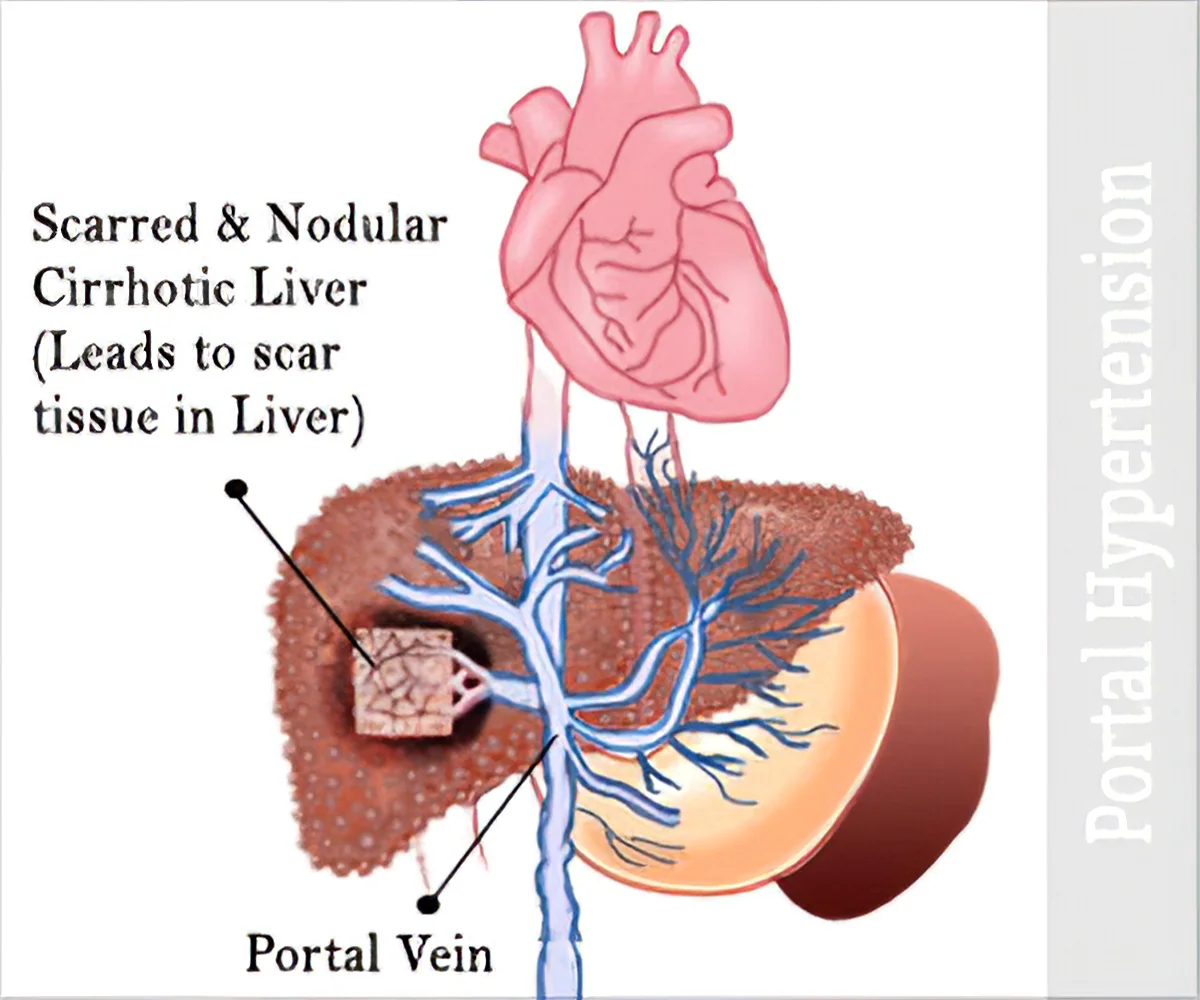Portal Hypertension
Portal hypertension specialist in Mumbai, Maharashtra
What is meant by Portal Hypertension?

Portal hypertension is an increase in the blood pressure within a system of veins called the portal venous system. Veins coming from the stomach, intestine, spleen, and pancreas merge into the portal vein, which then branches into smaller vessels and travels through the liver. If the vessels in the liver are blocked due to liver damage, blood cannot flow properly through the liver. As a result, high pressure in the portal system develops. This increased pressure in the portal vein may lead to the development of large, swollen veins (varices) within the oesophagus, stomach, rectum, or umbilical area (belly button). Varices can rupture and bleed, resulting in potentially life-threatening complications. To avoid these complications meet Dr Chetan Kalal he is a Portal Hypertension Specialist in Mumbai, Maharashtra. And he is giving Portal hypertension treatment in South Mumbai also. Visit and take a Consultation from Dr. Chetan Kalal.
The most common cause of portal hypertension is cirrhosis of the liver. Cirrhosis is scarring which accompanies the healing of liver injury caused by hepatitis, alcohol, or other less common causes of liver damage. In cirrhosis, the scar tissue blocks the flow of blood through the liver. Other causes of portal hypertension include blood clots in the portal vein, blockages of the veins that carry the blood from the liver to the heart, a parasitic infection called schistosomiasis, and focal nodular hyperplasia, a disease seen in people infected with HIV, the virus that may lead to AIDS. Sometimes the cause is unknown.
The onset of portal hypertension may not always be associated with specific symptoms that identify what is happening in the liver. But if you have liver disease that leads to cirrhosis, the chance of developing portal hypertension is high. The main symptoms and complications of portal hypertension include:
- Gastrointestinal bleeding: Black, tarry stools or blood in the stools; or vomiting of blood due to the spontaneous rupture and bleeding from varices.
- Ascites: An accumulation of fluid in the abdomen.
- Encephalopathy: Confusion and forgetfulness caused by poor liver function and the diversion of blood flow away from your liver.
- Reduced levels of platelets or decreased white blood cell count.
Unfortunately, most causes of portal hypertension cannot be treated. Instead, treatment focuses on preventing or managing the complications, especially the bleeding from the varices. Diet, medications, endoscopic therapy, surgery, and radiology procedures all have a role in treating or preventing the complications. Other treatment depends on the severity of the symptoms and on how well your liver is functioning. With a proper diagnosis from Dr. Chetan Kalal– Portal hypertension specialist in Mumbai, Maharashtra, he can suggest you the necessary treatment or necessary surgery option. Treatment may include:
- Endoscopic therapy: This is usually the first line of treatment for variceal bleeding and consists of either banding or sclerotherapy. Banding is a procedure in which a gastroenterologist uses rubber bands to block off the blood vessel to stop bleeding. Sclerotherapy is occasionally used when banding cannot be used and is a procedure in which a blood-clotting solution is injected into the bleeding varices to stop bleeding.
- Medications: Nonselective beta-blockers (nadolol or propranolol) may be prescribed alone or in combination with endoscopic therapy to reduce the pressure in varices and further reduce the risk of bleeding. Nonselective beta blockers are also prescribed to prevent a first variceal hemorrhage in a patient with varices that are felt to be at risk for bleeding. Esophageal variceal banding has also been used for that purpose, especially in patients who can’t take beta blockers. The drug lactulose can help treat confusion and other mental changes associated with encephalopathy.


